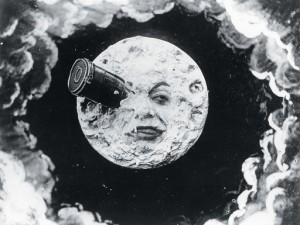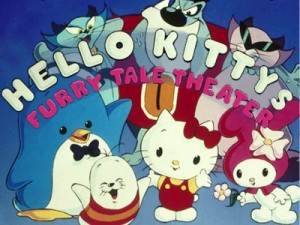PLC Prompt: Transformers
Evil and tyranny and blowing the moon out of its orbit – oh those despicable Decepticons. In Transformers Epidsode 65, evil machinations mount to once again wreak havoc upon the Earth, and it’s up to three scrappy kids and a whole bunch of Autobots to save the day.
In this episode, the Decepticons‘ destructive multi-robot is needed to operate a laser cannon that will blow the moon from its orbit, hastening the Earth’s destruction. At the beginning of the episode, this destroyer bot gets destroyed itself, and one of its personality chips gets lost in the shuffle. Some scrappy kids (two rebellious boys and a smarty pants nerd girl in glasses) working on a science project find the lost personality chip, put it in their own robot project, and let the new beast loose. It wreaks havoc thanks to the evil robot personality inside it, but the Autobots come to the aid of the kids and help them deactivate the beast. The kids then reprogram it and use it to help the Autobots foil the Decepticons‘ evil plan. Hurray.
As Cross mentioned, most events in the episode are marginal and not based on any particular threat. There are moments, however, when the Decepticons deal with an Hispanic dictator for spare parts and weaponry. They also break into a pseudo-Russian base and steal more parts for their evil robot. Other than this, however, the action is between the robots and is kept light with humor mixed-in here-and-there. In such, it reflects Cross’ statement of a lacking real world presence in PLCs. The conflicts are located in the now, as well, despite the oblique reference to Soviet soldiers. The three high schoolers are roped into the episode as well, due to their crazy science experiment gone awry. There aren’t really any adult concerns, except for the kids’ teacher who berates them and challenges them to really apply themselves. Overall, the episode is bland and not compelling, with a rote message on finding your place in the world even if your a weirdo, hellion, or poorly functioning robot. The time is displaced, and the consequences seem minimal.



